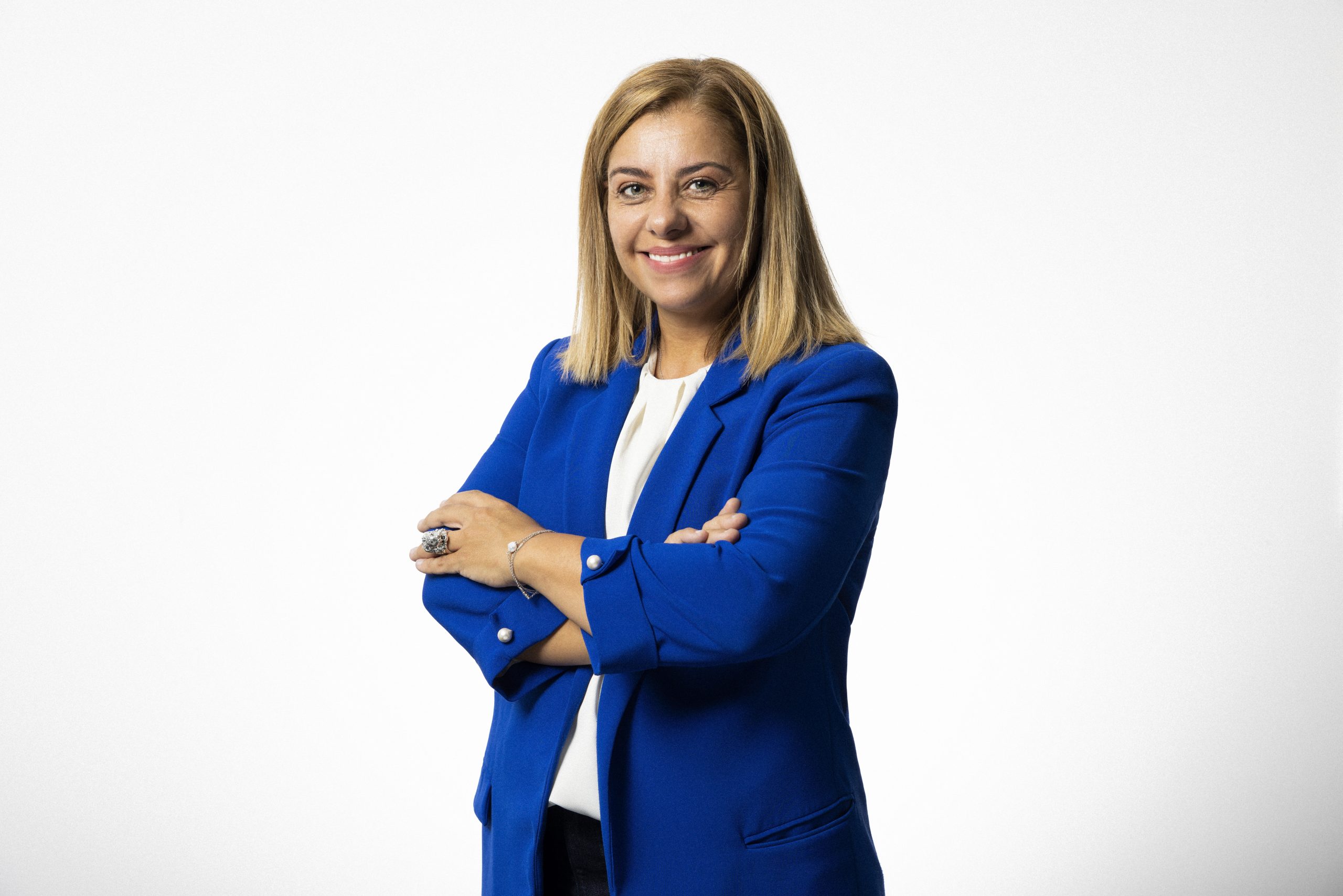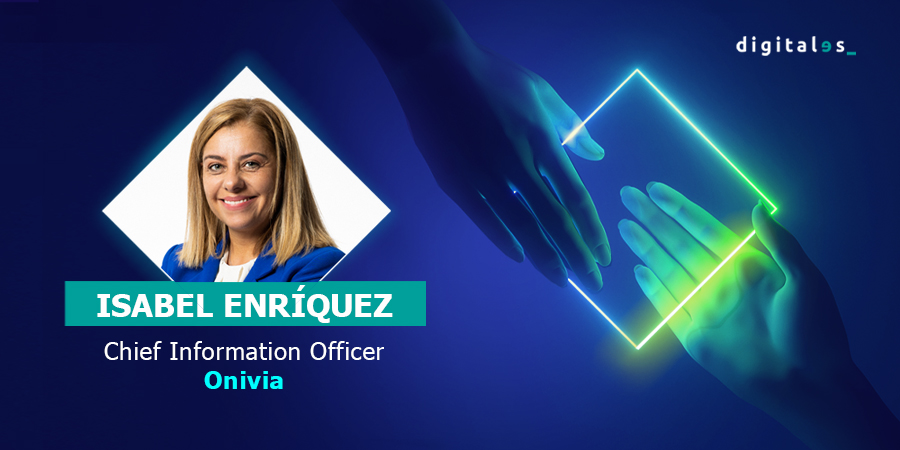22/09/2022
CRACKS of technology’ is a weekly series of interviews, through which we want to give voice to those IT professionals who are absolute geniuses of technology in Spain. We want to hear from them, to know and recognize the work they do in these companies; to know what they are passionate about and what advice they have for those who will come after them.
After almost 18 years working in a large company in the sector, and being considered one of the great experts in IT systems and operations in Spain, in April 2022 Isabel Enríquez decided to embark on a new stage as chief information officer of the wholesale operator Onivia.
Today he welcomes DigitalES just as he has taken on his new responsibilities: with a big smile. In this conversation we will meet a woman with clear ideas, a perfectionist and proud to embody the coveted strategic role of the CIO in companies.
Q.- Did you feel vertigo at the time of changing jobs, after such a long time?
A.- Of course! It is inevitable, especially, as in my case, if you feel happy in a company. However, starting over is also stimulating. Onivia is an extremely young company [2019] which has already become a key player on the board, in a telco sector that is particularly cutting-edge and dynamic.
I suppose that the illusion and the stimulus of joining a management team that gave me full confidence outweighed the fear.
Q.- You have spent your whole professional life in the telco sector, although this is your first incursion in a neutral operator that is also a start-up. To what extent has it been a shock?
A.- I confess that during the first few weeks I had a hard time understanding the concept of a neutral and independent operator, but today I have not only come to understand it, but I value it highly because I believe it offers incalculable value to ISPs of all sizes, and indirectly to the economy that is built around it.
As for Onivia as a start-up, I was looking forward to working in such an environment. There is an energy in the air that makes hard work very rewarding.
Q.- Tell us about what you find most stimulating about your role as CIO of Onivia.
A.- One of the things that attracted me most to Onivia was the freedom to shape my own role as CIO. Thus, on the one hand, it is about IT accompanying the company in its growth, ensuring that the systems provide the necessary support to all business processes. Achieving business objectives is a team effort, Onivia has the prospect of continuing to grow very fast and IT will try to contribute to this as much as possible.
On the other hand, the CIO is responsible for ensuring that the operations linked to information systems are efficient and function correctly. And here I want to put a lot of focus on the management of operations with customers. I intend to put into practice the concept of ‘operational excellence’ that has been talked about for so long and that I believe will be a strategic differentiator for Onivia.
Q.- In what sense?
A.- Onivia is growing very fast, among other reasons, because it has been able to break down the entry barriers of smaller ISPs to a neutral operator’s network. We offer an onboarding process whereby an operator can be marketing our services within 4 to 6 weeks, without the need for large upfront investments, and we can offer this only by being extremely efficient in operations. My obsession is to continue improving that operational excellence through a personalized review of the management we develop with each of our clients, obsession for detail and absolute focus on our clients, our ISPs.
Q.- Earlier you mentioned the management team as one of the company’s strengths.
A.- For me, a job is not only interesting because of what you are going to do, but also because of how you are going to be able to work. From this perspective, I knew the Onivia management committee from past lives so, in a way, I could sense what the working dynamics were going to be and I felt very comfortable with them.

Q.- We recently learned the latest data on broadband capillarity in Spain. What is your assessment of the situation?
A.- The data show that 91% of Spanish households already have access to the fiber network, which puts us at the forefront in Europe, but we cannot forget the remaining 9%. For many small towns and rural areas, digitization is absolutely essential, not only to reach people, but also as an economic driver. I experienced this first-hand in my hometown, Baltanás (Palencia), and now I see it every day in my work.
The percentage that remains to be covered is the most difficult, although it is not impossible. We will probably have to resort to a complementarity of the fixed network and the 5G network. However, it is important that we focus not only on continuing to expand coverage, but also on ensuring that it is of high quality. We will have to keep an eye on how technologies such as WiFi6 and XGSPON evolve and how they can help us to further improve quality, speed, data capacity…
«Ninety-one percent of Spanish households already have access to the fiber network, which puts us at the top in Europe, but we cannot forget the remaining 9%»
Q.- Is Spain losing its competitive advantage in telecommunications and where do you think we need to step on the accelerator?
A.- At the moment we are still the leader, but there are nuances. We are number one in fiber deployment, although we are ahead of other European countries in terms of network fill (i.e. penetration and accessibility). In short, it is one thing for fiber to reach a town and another for all citizens and SMEs in the town to contract fiber services and start using it. I think these are challenges that need to be addressed in parallel, without forgetting the usage aspect.
Q.- Let’s talk about the technological trends you observe in the telco sector. Which do you think are the most outstanding and which do you think have the greatest applicability in the business?
A.- There is a lot of effervescent innovation at the moment. Blockchain, for example, is a trend that will arrive but offers few use cases for telcos, at least for now. In IoT there are interesting projects for diversification towards, for example, geolocation of devices and vehicles.
But, among the emerging technologies of the moment, I would highlight artificial intelligence and its applicability in bots of all kinds. It must be taken into account that telcos handle millions of customers: therefore, the segmentation and load reduction that bots allow greatly help to improve the quality of service.
Secondly, all those technologies aimed at streamlining business operations stand out. This is the case of virtualization (due to the reduction of physical assets), cloud (due to the flexibility and scalability it provides) and edge computing (due to the optimization of data processing and securitization).
And finally, I would say that cybersecurity has been an extremely critical process for telcos for years, and will continue to be. Anticipating and continuously monitoring systems is now part of everyday life for all companies in the industry.
Q.- You are not lacking in challenges!
A.- And don’t let them fail! At Onivia we literally face new challenges every day. In the end, that’s what gets you hooked on the telecommunications sector. Once you get to know it, it grabs you.











